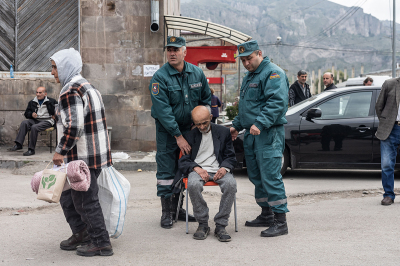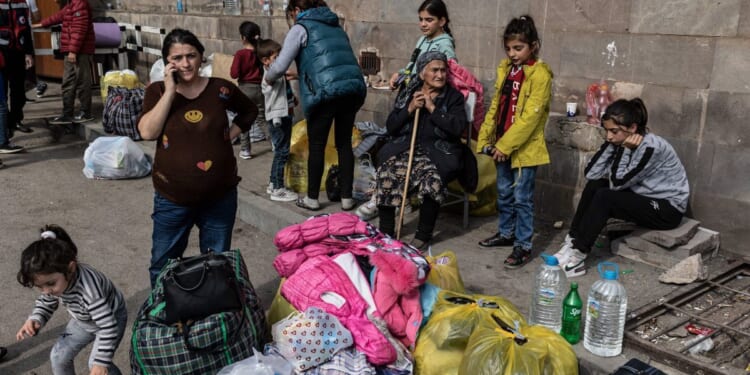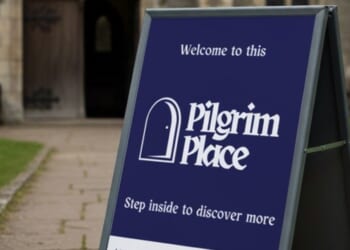
“From London to Lima, from Rome to Athens, from Paris to Seoul, from Cairo to Tokyo, and Amsterdam to right here in New York City, we stand on the shoulders of the leaders … who won and built our beloved nations, all of our nations, with their own courage, strength, spirit and skill.” President Trump concluded his recent address to the assembly of the United Nations with this stirring invocation of the common responsibility of each leader in the room: Protecting and stewarding the legacies of their respective nation.
Stewardship of the United States, President Trump argues, requires strong protection of borders. It also requires an adherence to America’s founding principles: free speech, free expression and the protection of religious liberty — including for Christians.
Persecution is a legitimate and concerning threat to Christians in many parts of the world. The president accurately asserted that Christianity, in aggregate globally, is the most persecuted religion globally. In his first administration, President Trump was notable as the first president since the inception of the U.S. resettlement program to specifically carve out protections for those fleeing religious persecution around the world. As the president and CEO of World Relief, a global Christian humanitarian organization that has for decades partnered with both local churches and the U.S. government to resettle refugees, I’ve had a front-row seat to the importance of programs like this to offer safe harbor for believers, along with those persecuted for other reasons under the law.
In the same breath, he highlighted the challenges facing Christians; our president rebuked other nations for allowing unchecked immigration. While maintaining simultaneous commitments to safety, due process and appropriate hospitality is certainly challenging, nations must create robust, functional immigration systems that allow expression of the biblical mandate to welcome immigrants, including those persecuted for their faith.
Uncontrolled borders present a security threat and mock the rule of law. But the refugee resettlement program is just the opposite: it’s a legal form of immigration established by Congress decades ago that is specifically for individuals who can prove they have fled a well-founded fear of persecution for specific reasons, including religious beliefs. The Heritage Foundation concludes that “refugees undergo more vetting than any other immigrants to the U.S.” The U.S. cannot meet the needs of millions of refugees, but it can certainly offer safe harbor for some of the most vulnerable, including those persecuted for their faith abroad. In fact, doing so is a part of our legacy as Americans: last year alone, the U.S. welcomed nearly 30,000 Christian refugees from the 50 countries where Open Doors says Christians face the most severe persecution. But almost zero persecuted Christians have been resettled since the refugee program was temporarily suspended in January.
Earlier this year, an Evangelical call for the continuation of the refugee resettlement program garnered tens of thousands of signatures, including from many prominent Evangelical pastors. Seven in ten Evangelicals affirm in recent polling that the U.S. has a moral responsibility to receive refugees. And in May, leaders from Focus on the Family, the Ethics and Religious Liberty Commission of the Southern Baptist Convention, Family Research Council and others joined World Relief in petitioning the administration to continue our long national legacy of refugee resettlement, which they declared among “the most essential tools the United States has historically used to uphold religious freedom,” including hundreds of thousands of Christians, but also Jews, Yazidis and various others persecuted for their faith.
In the coming days, the annual Presidential Determination for Refugee Admission is anticipated. It represents an opportunity to reinstate protections for refugees who have fled their homelands due to persecution. I call on President Trump to reopen that door, including and especially for Christians and others facing religious persecution.
The ideals our immigrant ancestors aspired to are worthy and weighty. What better way to honor and steward our heritage than to bless others just as we have been blessed? Let’s extend their legacy and give persecuted believers the opportunity to worship and live in peace.
Myal Greene is the president and CEO of World Relief.

















